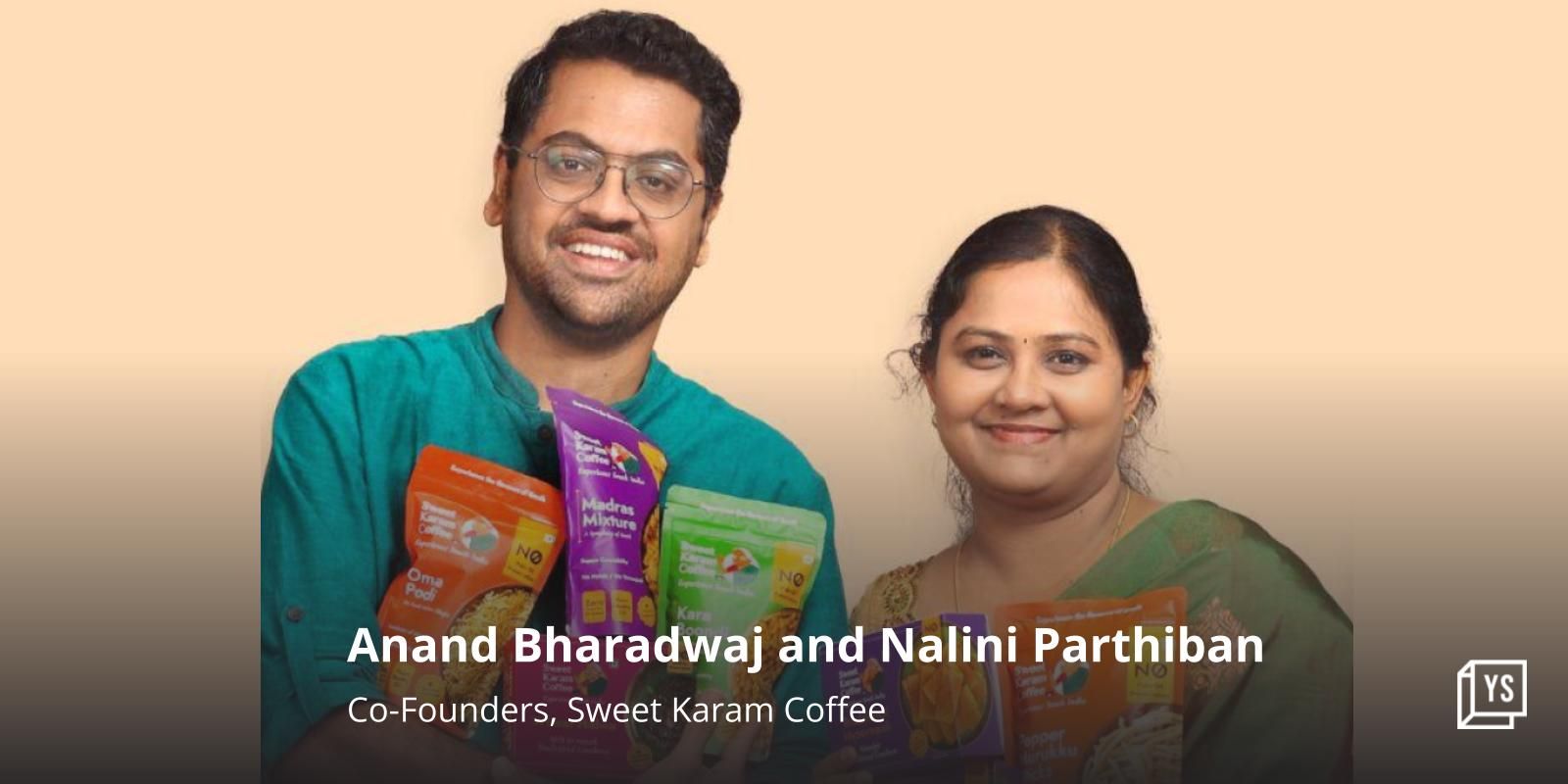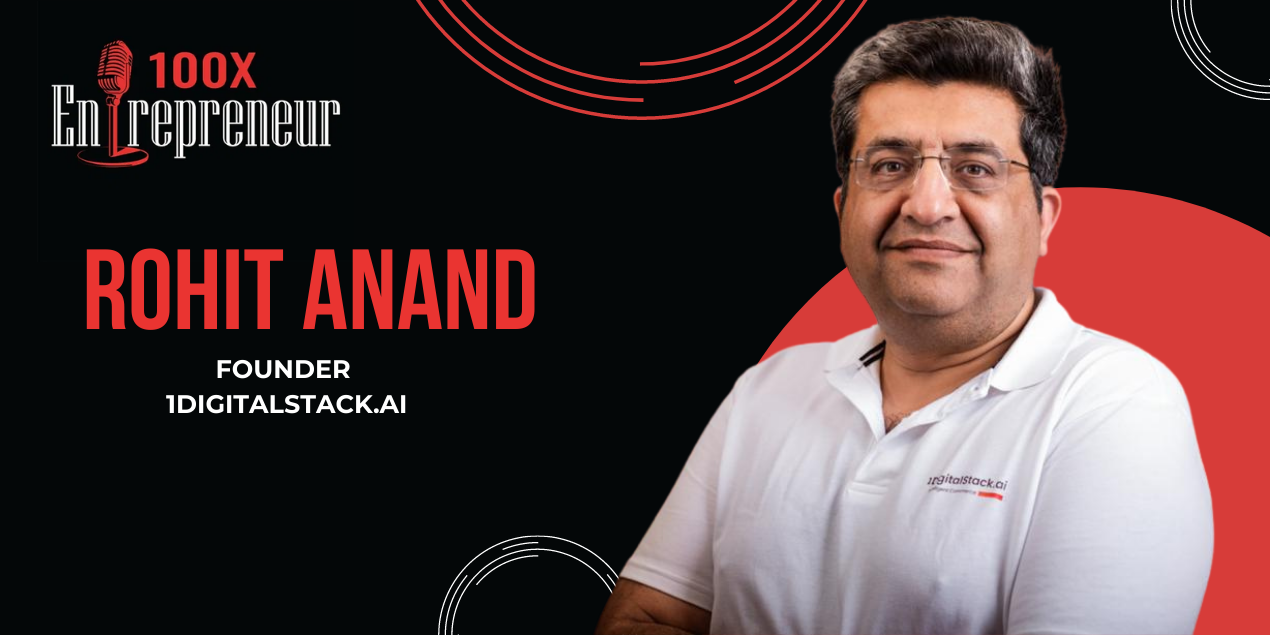From Dakshin: Sweet Karam Coffee wants to pay a delicious homage to grandma's timeless recipes
This Chennai-based snacking brand aims to provide a diverse range of authentic South Indian sweets and snacks devoid of palm oil and preservatives.
There’s something about our grandmother’s cooking that we all crave. We even continue to reminisce and try to emulate their recipes long after they are gone.
Such was the story of Anand Bharadwaj, who thought of his grandmother Janaki’s cherished recipes—the times when delicacies like Aval Pori Urundai, Nendran banana chips, and Kai Murukku filled their home during Diwali.
His wife, Nalini Parthiban, also fondly recalls not only assisting in making these treats but also cherishing the stories behind their origins. However, she says, “As a mother, I struggled to find the time to prepare (those) traditional recipes in the authentic way they deserved to be prepared.”
For Nalini and Anand, this struggle was profound, and the duo decided to take the entrepreneurship route. “Our mission was clear—to offer authentic recipes like our grandmother used to prepare and to share the unified voice of South India globally.”
Established in 2015, is a South Indian snacking direct-to-consumer (D2C) brand known for its fusion of traditional Grandma recipes, presented with a modern touch through contemporary packaging and technology.
At present, the Chennai-based brand serves a range of South Indian sweets, snacks, in-house filter coffee blends, and ready-to-eat meal mixes made without palm oil and preservatives.
No preservatives
The name Sweet Karam Coffee is a holistic snacking experience in South India and combines three aspects—the snacks begin with a sweet dish, followed by karam (namkeen), and ends with a hot filter coffee. “It is a mandatory part of all our celebrations,” Nalini says.
The duo bootstrapped Sweet Karam Coffee with Rs 2,000 to address two major issues in the South Indian snacking segment.
First, the poor availability and accessibility of well-packaged authentic traditional sweets and snacks free from preservatives and uses MAP (Modified Atmosphere Packaging) and nitrogen-flushed packaging to keep the snacks and sweets fresh with an extended shelf life. Second, Western snacking becoming a preferred choice among the younger generation.

Some of it's products: Madras Mixture, Ribbon Pakoda, and Wheat Halwa
Only selling through its website, the D2C brand offers a wide range of snacks from Tamil Nadu and Kerala, such as Madras Mixture, Ribbon Pakoda, Seedai, Kara Sev, Oma Podi, Peanut Chikki, etc. It soon plans to expand its offerings to include Karnataka and Andhra specialities.
When asked what sets the brand apart, Nalini says that taste is the primary differentiator, coupled with clean and locally sourced products. “With the current trends favouring millet-based snacks and sugar-free options, we're actively experimenting with these to stay on track.”
Sweet Karam's direct competition stems from homemade snacks in South India. “We make products with zero palm oil and preservatives, which tastes just like we make at home,” she adds.
The brand mainly uses rice bran or groundnut oil along with jaggery in its products. Some of the millet snacks are made using sunflower oil, raw rice flour, and gram flour—varying from each snack.
Empowering farmers and womenpreneurs
Besides serving healthy snacks, Sweet Karam Coffee helps an entire ecosystem of small farmers and homepreneurs, providing opportunities to those who sustain these traditional delights. At present, it has 35 employees, mostly women.
“The other differentiator is that people are becoming ingredient-conscious. They want more closer to home products that replicate the taste of home. There is also increased adoption of South Indian snacks among the non-South Indians,” she adds.

Anand's grandmother Janaki, the inspiration behind the D2C snacking brand
“Collaborating closely with farmers, we establish a direct connection with the very source of our ingredients—the yield. In the southern regions, our millet products are sourced directly from farmers, making the snacks more organic,” says Nalini.
While rich flavours and homely ingredients take centre stage in these snacks, authenticity comes from “our grandmother's recipes and working with skilled home chefs,” she says, adding, “We empower them, especially women entrepreneurs, to scale with us. The goal is to build a sustainable ecosystem that also preserves tradition.”
Taking ‘Dakshin’ cuisine overseas
Today, with over 100,000+ customers and a presence in 32 major countries, including the US, UK, Canada, Singapore, and UAE, Sweet Karam Coffee has achieved all this growth on the strength of its website and app.
“Since 2020, the company has experienced a remarkable surge in growth, doubling its revenue year on year,” says Nalini.
Recently, the brand raised $1.5 million in a pre-Series A round from to expand offline across new geographics and strengthen its regional product portfolio.
“We are currently D2C focused, planning to expand offline into retail stores and explore B2B opportunities. The funds will majorly go into channel expansion, marketing, and team building,” she adds.
In the next five years, the brand is aiming for a pan-India presence and global expansion. “We are gaining interest from both the US and the Middle East. We are also planning to expand to quick commerce and retail formats to remain very close to our consumers,” says Nalini.
“In the end, Sweet Karam Coffee is nothing but a contemporary twist to age-old products. No matter where you reside, craving home food is inevitable,” she adds.
Edited by Suman Singh








